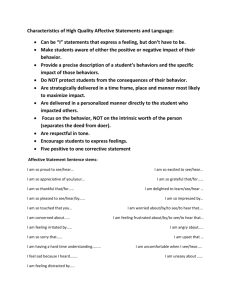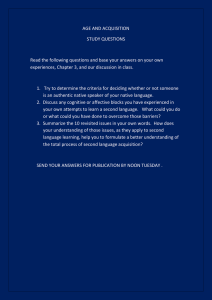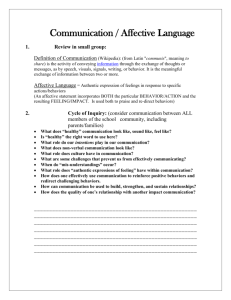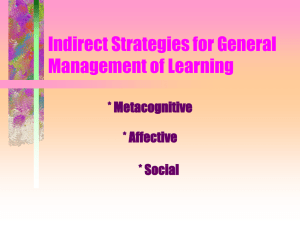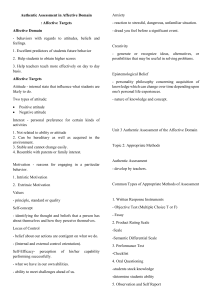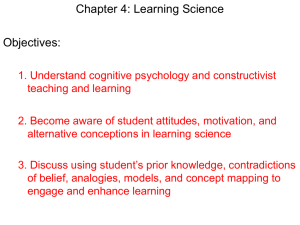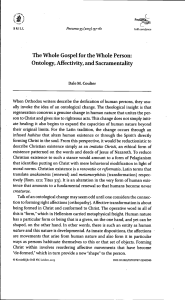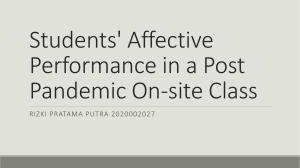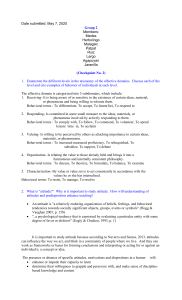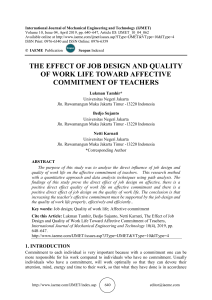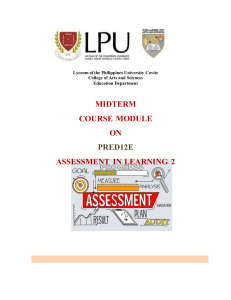Glossary Intellectual development
advertisement
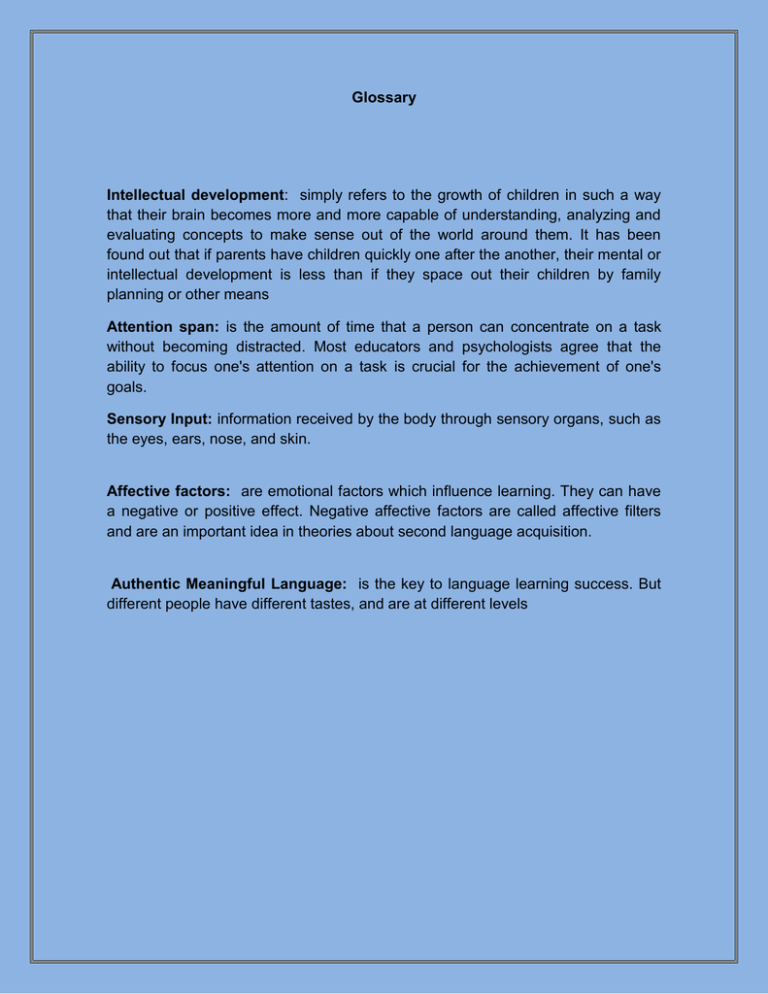
Glossary Intellectual development: simply refers to the growth of children in such a way that their brain becomes more and more capable of understanding, analyzing and evaluating concepts to make sense out of the world around them. It has been found out that if parents have children quickly one after the another, their mental or intellectual development is less than if they space out their children by family planning or other means Attention span: is the amount of time that a person can concentrate on a task without becoming distracted. Most educators and psychologists agree that the ability to focus one's attention on a task is crucial for the achievement of one's goals. Sensory Input: information received by the body through sensory organs, such as the eyes, ears, nose, and skin. Affective factors: are emotional factors which influence learning. They can have a negative or positive effect. Negative affective factors are called affective filters and are an important idea in theories about second language acquisition. Authentic Meaningful Language: is the key to language learning success. But different people have different tastes, and are at different levels
